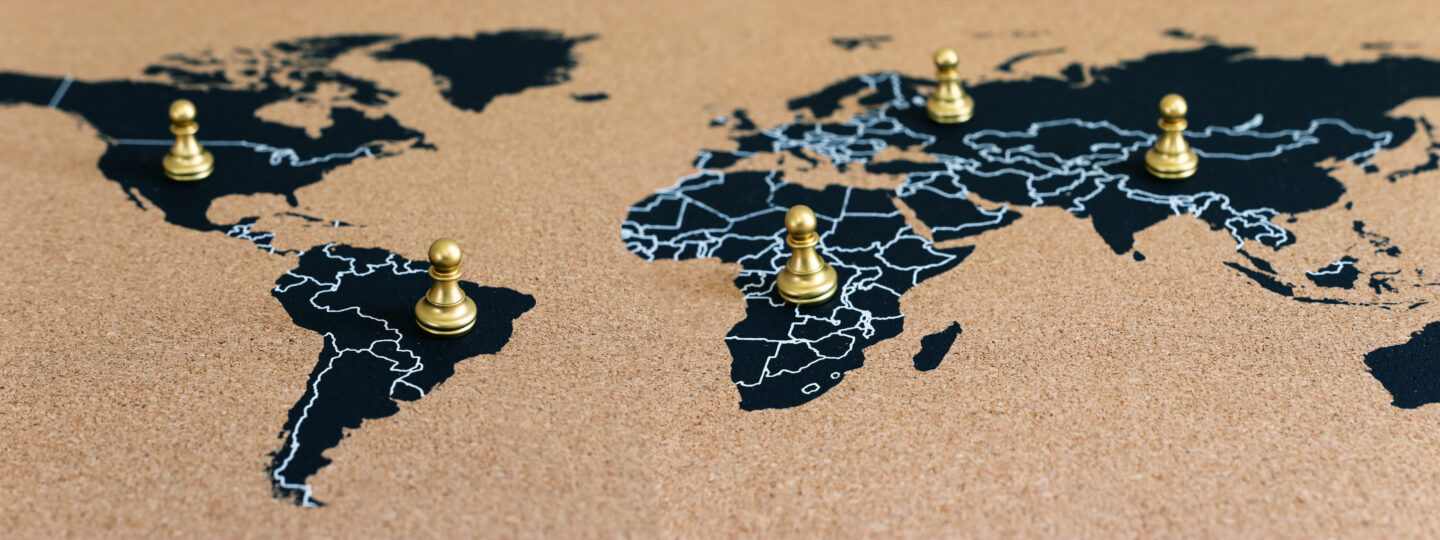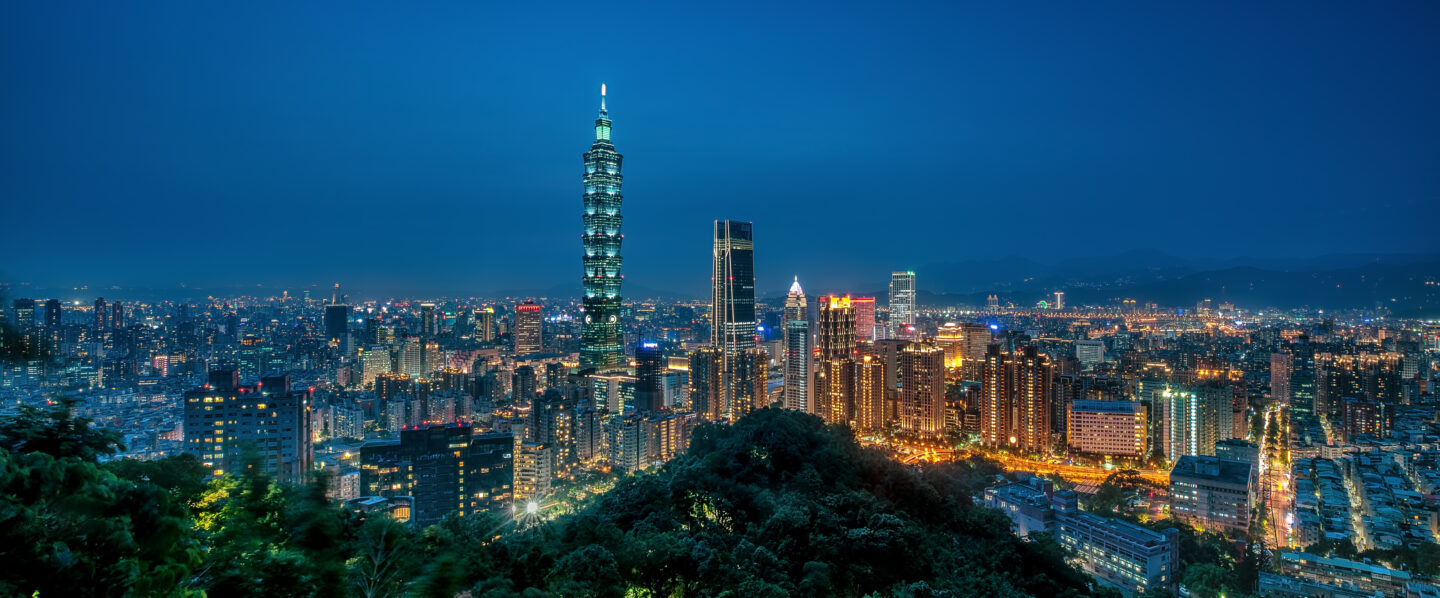
Why leaders should learn to value the boundary spanners
Entrepreneurial talent who work with other teams often run into trouble with their managers. Here are ways to get the most out of your ‘boundary spanners’...
Audio available

by David Bach Published July 14, 2023 in Strategy • 6 min read
Most businesses are affected by geopolitics, but few can claim the reverse – that they can shape geopolitical dynamics. TSMC, Taiwan’s leading semiconductor manufacturer, is one of them. Against the backdrop of growing US-China tensions, with navy ships and combat aircraft from both sides getting increasingly close to one another in the narrow Taiwan Strait, I recently asked a group of senior executives what would happen if TSMC’s factories on the contested island went offline, say as the result of a naval blockade or military confrontation. “Our businesses would come to halt within weeks,” was the consensus, and not just from leaders of electronics or manufacturing companies.
TSMC controls over 60% of the world’s foundry market, manufacturing chips for leading designers such as NVIDIA, Qualcomm, Broadcom, and even Apple, which started designing its own chips in 2010. For the most advanced chips, the company’s market share is even higher, an astonishing 90%. Most computers, smartphones, and tablets contain chips made by the Taiwanese industry leader – you are probably reading this article on a device powered by them!
On the one hand, TSMC’s success epitomizes the power of globalization in enabling firms to focus on their core competency, leverage global supply chains, and thereby maximize value for customers and investors. Founded in 1987, the company became so good at manufacturing chips that most leading semiconductor firms in the US and Europe decided to focus on chip design, leaving manufacturing to TSMC and a handful of other contract manufacturers. This in turn helped “fabless” chip design firms get even better at what they do – America’s Nvidia controls over 80% of the market for the most advanced gaming chips.
Similarly, just three firms – Taiwan’s Mediatek and Qualcomm, and Apple in the US – account for 86% of the smartphone chip market, with TSMC doing most of the manufacturing. We find a similar concentration upstream from TSMC: ASML in the Netherlands is the undisputed leader in making the machines required for chip manufacturing; a British firm, Arm, owns the software most chip designers use; two Japanese firms – JSR and Shin-Etsu – control 75% of the market for photoresists, light-sensitive chemicals used to etch patterns onto silicon wafers; and just a handful of companies supply most of these wafers.

“It’s not that Taiwan’s cake is being cut in half. The cake is getting bigger, and we’re giving some of the extra slices to America and Japan.”- Emile Chang, Taiwan's Ministry of Economic Affairs
On the other hand, corporate and geographic concentration has created chokepoints, single points of failure in global value chains. This is the downside of unrelenting efficiency pursuit in a globalized economy. The COVID pandemic already highlighted our vulnerability to supply interruptions. Back then it was a once-in-a-century pandemic. Now it is a permanent geopolitical reality. And no place illustrates this better than Taiwan, where 10 of TSMC’s 14 factories and 90% of its 70,000 staff are located, a small island that Beijing claims as part of China and which most of the rest of the world does not formally recognize as a country.
Western governments have woken up to their strategic vulnerability. Lured by generous government subsidies and a bit of arm-twisting, TSMC is building a $12 billion new semiconductor plant in Arizona to become operational in 2024 and one for $9 billion in Japan. The company is in discussions to build a $11 billion factory in Germany and an additional one in the US. The investment amounts required underscore the challenge, with each project taking between three and five years to complete. Meanwhile, diversification demand shows no signs of a slowdown, with Morris Chang, TSMC’s 91-year-old founder and former chairman, recently quipping that “many countries asked me, can we go to their countries to manufacture chips?”
Back at home in Taiwan, TSMC’s foreign expansion is controversial. While the government has supported it, the more nationalist opposition is firmly opposed to sharing the country’s industrial crown jewel with the world. “TSMC will surely become ‘USMC’ in the future,” opposition leader Tseng Ming-chung said at a news conference in late 2022. Pointing out that the new plants account for less than 5% of TSMC’s production capacity, a senior government official rejected the charge: “It’s not that Taiwan’s cake is being cut in half. The cake is getting bigger, and we’re giving some of the extra slices to America and Japan,” said Emile Chang of the Ministry of Economic Affairs.
The idea is that if Taiwan became a powerhouse in semiconductors, then America would have to support and defend it. The strategy has been super successful.- Dan Hutcheson, industry observer
For opponents of global expansion, the fear goes far beyond sharing know-how with other countries. Because semiconductors are so central to the global economy, the industry provides Taiwan with a “Silicon Shield,” a life insurance against a possible Chinese invasion. As Mark Liu, the current chairman of TSMC, explained, “The world needs Taiwan’s high-tech industry support.
So, they will not let the war happen in this region because it goes against interest of every country in the world.” According to industry observer Dan Hutcheson, that was the plan all along: “The idea is that if Taiwan became a powerhouse in semiconductors, then America would have to support and defend it. The strategy has been super successful.”
Herein now lies the strategic dilemma for TSMC, Taiwan, and the West. TSMC’s customers demand greater geographic diversification in the name of supply chain resilience, and the Taiwanese government cannot ignore the national security concerns of its principal military and political backers in the US, Japan, and Europe. Yet go too far in reducing the world’s dependence on this tiny island and you put its security at even greater risk – at a moment when Chinese President Xi Jinping is telling his country to prepare for war in case a peaceful unification with the island is unattainable.
Over the next months and years, TSMC’s leaders will need to walk a geopolitical tightrope with the highest stakes. That is why closely following this one company – and the way it goes about balancing commercial and political interests across multiple regions – will be so instructive for anybody looking to understand how geopolitics has upended global business.

President of IMD and Nestlé Professor of Strategy and Political Economy
David Bach is President of IMD and Nestlé Professor of Strategy and Political Economy. He assumed the Presidency of IMD on 1 September 2024. He is working to broaden and deepen IMD’s global impact through learning innovation, excellence in degree- and executive programs, and applied thought leadership. Recognized globally as an innovator in management education, Bach previously served as IMD’s Dean of Innovation and Programs.

July 3, 2025 • by Eric Quintane in Audio articles
Entrepreneurial talent who work with other teams often run into trouble with their managers. Here are ways to get the most out of your ‘boundary spanners’...
 Audio available
Audio available
June 24, 2025 • by Jerry Davis in Audio articles
The tech broligarchs have invested heavily in Donald Trump but are not getting the payback they bargained for. Do big business and the markets still shape US government policy, or is the...
 Audio available
Audio available
June 19, 2025 • by David Bach, Richard Baldwin, Simon J. Evenett in Audio articles
As governments lock horns in our increasingly multipolar world, long-held assumptions are being upended. Forward-looking executives realize the next phase of globalization necessitates novel approaches....
 Audio available
Audio available
June 2, 2025 • by George Kohlrieser in Audio articles
Leadership Honesty and courage: building on the cornerstones of trust by George Kohlrieser Published 17 April 2025 in Leadership • 5 min read DownloadSave Trust is the bedrock of effective leadership. It...
 Audio available
Audio availableExplore first person business intelligence from top minds curated for a global executive audience